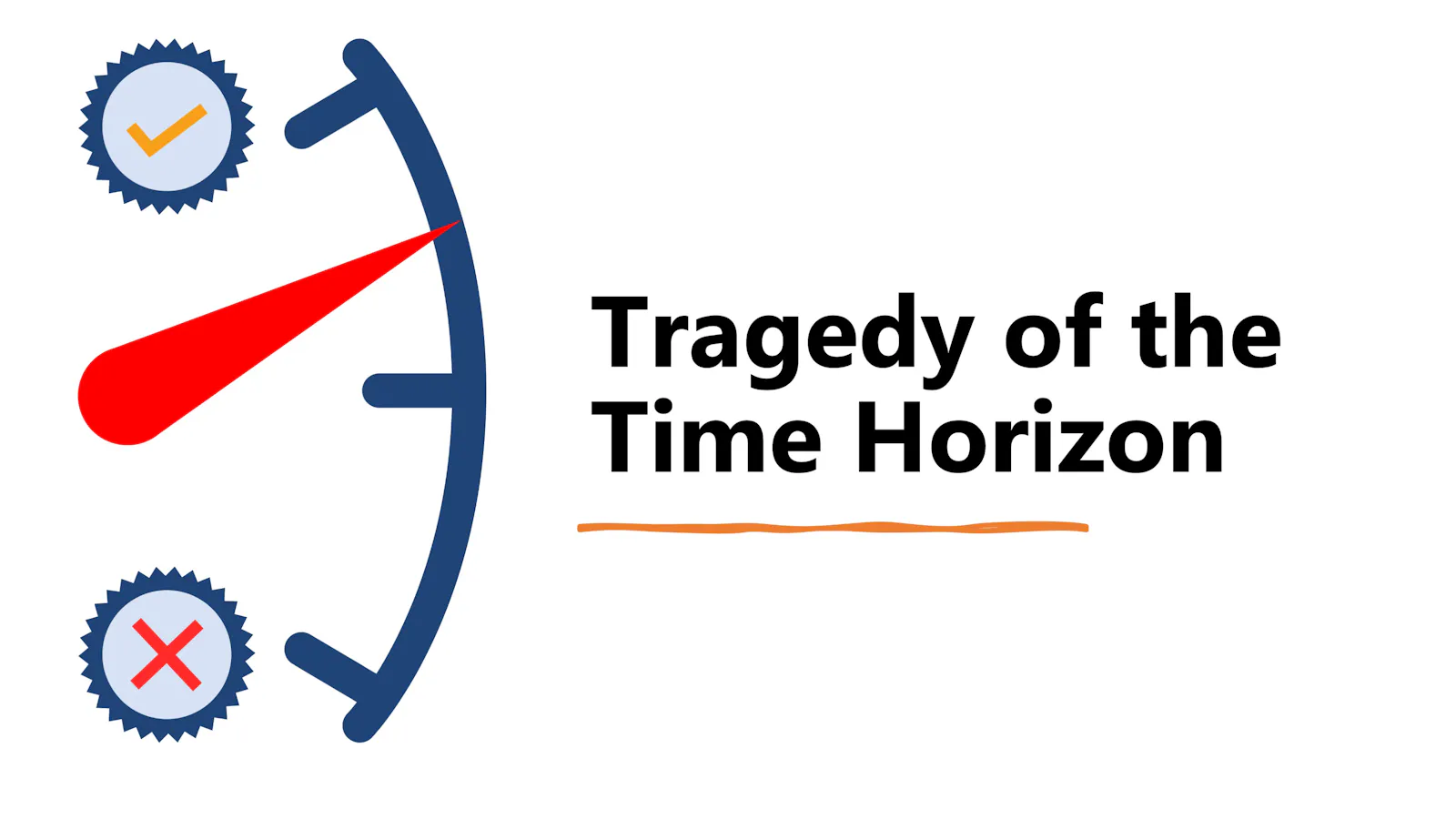The tragedy of the time horizon
June 2023

The ‘tragedy of the commons’ is a widely understood concept. It refers to a situation where individuals, acting in their own self-interest, deplete or exploit a shared resource, leading to its degradation, despite the negative consequences for everyone involved. It highlights the conflict between individual and collective interests when managing common resources.
Adding a temporal component to this concept to reflect our responsibilities for the future or even for future generations, we arrive at the ‘tragedy of the time horizon’. It refers to a situation where entrenched short-termism undermines our ability to make decisions with long-term benefits. In parts this is also described as presentism, which often results in political and social myopia, with short-sighted decisions that prioritise current generations over future ones, who will be more affected by current decisions.
In today's fast-paced world, instant gratification and quick results dominate our lives. We are rather impatient and want it all and want it now. This threatens our ability to make decisions with long-term benefits. As individuals, organisations and societies, we must recognise and address this inherent bias towards immediate gains to ensure a sustainable and prosperous future for ourselves and generations to come.
The case of Cohesion Policy
The ‘tragedy of the time horizon’ is also visible in the context of EU Cohesion Policy. Already for a long time, it could be observed when impacts are studied and assessed shortly after the money has been invested. This despite the fact, that many investments in Cohesion Policy are about facilitating structural changes, and that it is well known that structural changes take time – sometimes even decades.
To read this post you'll need to become a member. Members help us fund our work to ensure we can stick around long-term.
See our plans (Si apre in una nuova finestra)
Sei già un affiliato? Accedi (Si apre in una nuova finestra)


